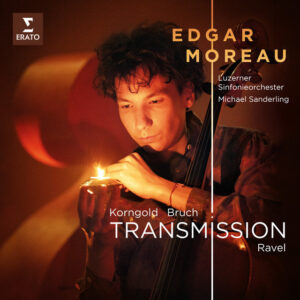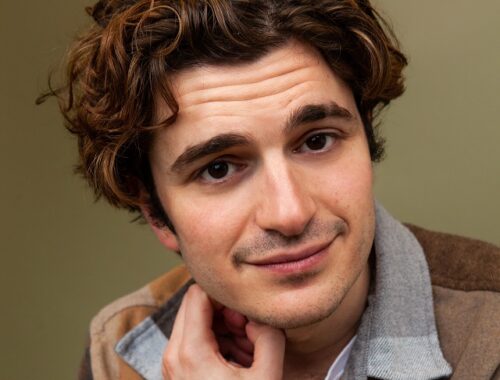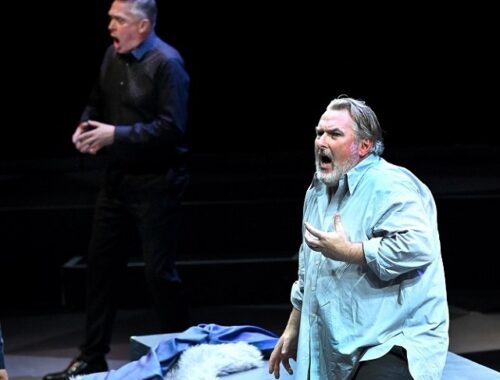GRAMOPHONE Review: Transmissions – Edgar Moreau, Luzerner Sinfonieorchester/Sanderling
 The cello as cantor. And for Edgar Moreau the incantations plainly run deep. The ‘Transmission’ of the title goes from the heart to the heart, every prayerful inflection, every melismatic phrase invoking something as personal as it is universal. All these composers – regardless of their religious beliefs or absence thereof – were drawn to the ache, the plangency, the contemplative nature of these melodies and Moreau makes them sing for the many not the few. His tone is beautiful, his phrasing rapt, and the intensity of his delivery is magnified in the immediacy of his presence in the sound picture, his sonorous lower register lending both a foundation and a reach to the featured pieces.
The cello as cantor. And for Edgar Moreau the incantations plainly run deep. The ‘Transmission’ of the title goes from the heart to the heart, every prayerful inflection, every melismatic phrase invoking something as personal as it is universal. All these composers – regardless of their religious beliefs or absence thereof – were drawn to the ache, the plangency, the contemplative nature of these melodies and Moreau makes them sing for the many not the few. His tone is beautiful, his phrasing rapt, and the intensity of his delivery is magnified in the immediacy of his presence in the sound picture, his sonorous lower register lending both a foundation and a reach to the featured pieces.
There is Ernest Bloch offering supplications From Jewish Life before projecting them large in the momentous Schelomo (more anon); there is Bruch’s elegiac and much-loved Kol Nidrei, a universal prayer for the ages, played here with elegance and ardour; and there is Ravel’s ‘Kaddish’ where the elegance is in the restraint of his distinctive scoring and where the liturgical hymn and popular song which follows it create an arresting juxtaposition – not least through the unsettling harmonies of the latter.
Bette Davis was the object of male rivalry (a cellist and a composer – how convenient) in the movie Deception which so gratefully spawned Korngold’s Cello Concerto. A climactic six minute sequence in the movie became a taut and eventful fifteen minutes for the concert hall reminding us along the way of the supreme irony that Hollywood escapism should have facilitated Korngold’s escape from Nazi tyranny. His brand of hothouse lyricism proved eminently filmic once a few of his more radical inclinations had been stripped away and the second subject of this concerto’s first movement is as gorgeous as anything we have of his. Moreau relishes it.
Speaking of filmic, Bloch’s Schelomo – the centrepiece of the album – out-Hollywoods Hollywood in its rhapsodic grandiosity. Miklos Rosza eat your heart out. The seamless interaction between Moreau and Michael Sanderling (son of the great Kurt and himself a cellist) really comes into its own here. It isn’t Rostropovich and Bernstein (what is?) but the darkly reflective inwardness of the piece (the proverbial voice in the wilderness) is married to its epic proclamations with great internal clarity and brilliance. The Lucerne Symphony Orchestra takes the lid off the central climax where fiery imitations of the shofar culminate in the super-thrilling moment where the trombones weigh in. Terrific.
You May Also Like

COMPARING NOTES with ROBERT TRIPOLINO
26/06/2023
GRAMOPHONE: From Where I Sit – November 2021
20/12/2021

